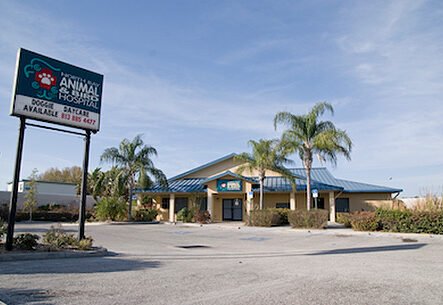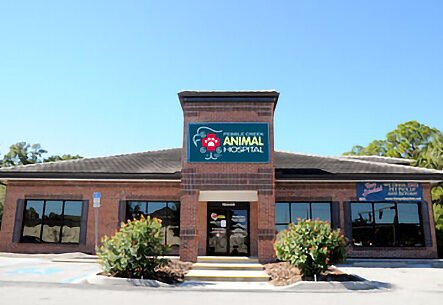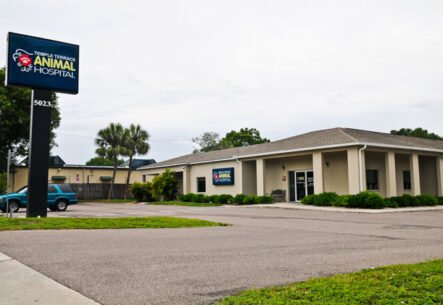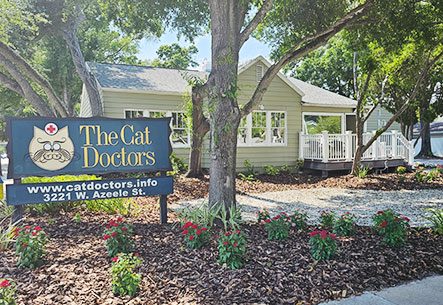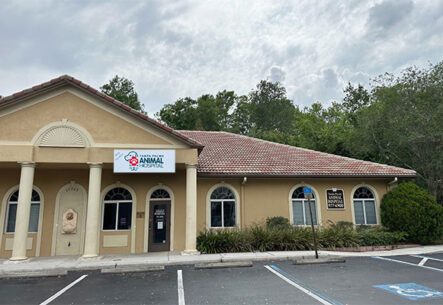Gastrointestinal disorders
Gastrointestinal (GI) disorders and diseases affect a pet’s stomach and intestines, resulting in pain and other problems.
Your pet may have a GI disorder if he suffers from:
- Vomiting
- Regurgitation
- Flatulence
- Weakness
- Diarrhea/Constipation
Veterinarians recognize many potential types of GI disorders including:
- Colitis: An acute or chronic inflammation of the membrane lining the colon. Most frequently caused by whipworms (a parasite), tumors or polyps, a change in food, allergies (including those to food), swallowed foreign objects and certain other diseases.
- Constipation: Usually caused by insufficient fiber and water intake, eating hair, bones or other foreign objects, aging, tumors, trauma or fractures, prostate disease, spinal cord disease, large bowel nervous disorders, metabolic or endocrine disorders and debilitation.
- Diarrhea: Caused by infections, internal parasites, stress, a change in pet food, table scraps or rich snacks, eating spoiled food from the garbage and body organ dysfunction.
- Gastroenteritis: Inflammation or infection of the gastrointestinal tract, primarily the stomach and intestines. Causes may include eating rancid or spoiled food, swallowing foreign objects, eating toxic plants, internal parasites, stress, food allergies and disease conditions.
- Pancreatitis: An inflammation or infection of the pancreas (an elongated, tapered gland that is located behind the stomach). Origins are frequently unknown. Potential causes are feeding foods high in fat or rich table foods, infections, disease or trauma.
Your pet’s food can have a significant impact on his GI tract health. Your veterinarian may recommend feeding dogs a food that is highly digestible to help prevent irritation to sensitive stomachs and intestines. Also, high-soluble and insoluble fiber foods combined with moderate fat levels in your pet’s food help support proper intestinal function. Because several of these conditions may be ongoing, long-term nutritional management of the disorder may be required.
For an accurate diagnosis and treatment options, always consult your veterinarian.
Contributing Factors
Age – Colitis is more prevalent in pets under 5 years old, while constipation is more likely in older pets.
Stress – New pets or household members, moving or a change in the environment can be stressful for your pet.
Breed – Certain dog breeds, such as English Setters, Great Danes, German Shepherds, Golden Retrievers and Collies are more prone to particular gastrointestinal disorders.
Food – Digestive upsets can be caused by poor food quality, food intolerance, high-fat foods, sudden nutritional changes or overeating.
Other – Pets allowed to scavenge are more at risk for digestive upsets from eating contaminated or decomposing food.
Home Care
- Feed only the food recommended by your veterinarian
- Don’t give your pet any table scraps.
- Don’t allow your pet to scavenge.
- Never use any over-the-counter medicines, such as laxatives or binding agents, which are generally unsuitable for pets (unless specifically instructed by your veterinarian).
- Speak to your veterinarian before changing your pet’s food or medication.
- Fresh water should be available at all times.
Tampa, FL 33615 (View map)
Tampa, FL 33647 (View map)
Tampa, FL 33617 (View map)
Tampa, FL 33647 (View map)
